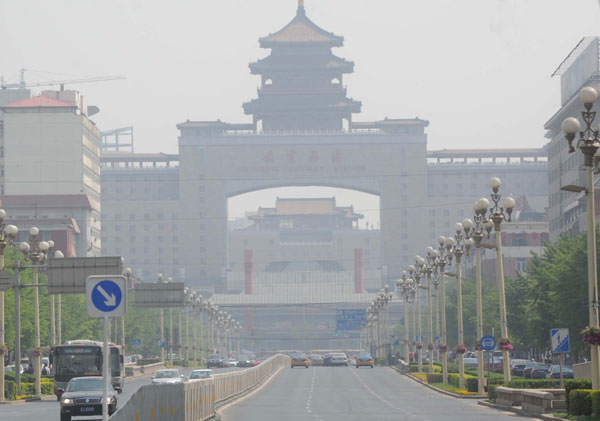 |
|
Photo taken on May 6, 2013 shows the smog-shrouded Beijing West Railway Station in Beijing, capital of China. [Photo/Xinhua] |
Heavy smog has returned to the skies of Beijing after a two-month break, with authorities predicting the pollution will linger due to unfavorable conditions.
The density of PM2.5, or particulate matter with a diameter of less than 2.5 micrometers that can harm the heart and lungs, reached 400 micrograms per cubic meter early on Monday, well above national and international standards, the Beijing Municipal Environmental Monitoring Center said.
The center said due to rising temperatures, lack of wind and other unfavorable conditions, the pollution is unlikely to disperse in the next few days.
It also suggested people stay indoors and avoid heavy physical labor. The elderly and people with heart and lung problems are advised to take protective measures.
However, the center's explanation failed to satisfy the public, with many people saying that blaming the pollution on unfavorable diffusion conditions is just an "irresponsible excuse".
"Instead of the chemical plants and cement mills, the weather takes all the blame whenever smog blankets the city, which hardly makes sense," Feng Shuying wrote on Monday on micro-blogging website Sina Weibo.
Song Guojun, a professor at Renmin University of China's School of Environment and Natural Resources, said the government must act promptly to control pollution.
"People are powerless against the weather but not pollution discharge control," Song said. "You can't always blame the weather for the pollution."
Now that weather forecasting is very developed, the government needs to come up with regulatory measures against weather that can cause pollution, including temporarily shutting polluting enterprises and enacting tougher traffic controls, Song said.
"The public needs better air quality, not a comprehensive explanation for the pollution," he said.
Song also said the city can further enforce its pollution emergency plan, under which some enterprises are suspended from production during heavy pollution.
"People's health is more precious than losses from suspended operations," he said.
